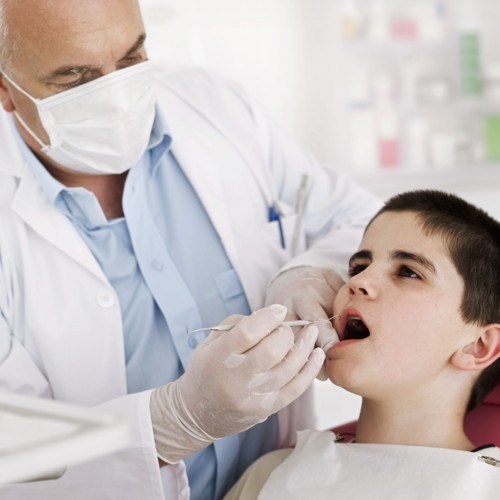Bruxism is the habitual grinding of teeth or clenching of jaws, which usually occurs at an unintentional and unconscious level. It can occur either when the person is awake or when he is asleep. In fact, it is seen most individuals (irrespective of their age) at some point of time in their lives. Bruxism symptoms vary depending upon the cause, duration, and the severity of the condition. One person who grinds his teeth might experience no symptoms at all, while another person with the same condition might experience a wide range of symptoms.

A Few Common Bruxism Symptoms
If you have this condition, the bruxism symptoms may be noticed by:
- Your partner or whoever sleeps next to you often, as the sound you make while grinding your teeth could be loud enough to wake that person
- Your dentist, when you visit him for dental checkups
Here are some common bruxism symptoms, many of which may be revealed when your dentist examines your teeth.
- Teeth that are worn down, flattened, fractured, or chipped
- Worn dental enamel (outermost layer of the teeth), exposing deeper layers of your teeth
- Jaw pain or tightness in your jaw muscles, typically on waking up in the morning
- Swollen or receding gums
- One or more shaky teeth, which you may end up losing (only if bruxism is severe and of a prolonged duration)
- Cheek bite i.e. damage caused when you chew on the inside of your cheek
- Indentations/markings of your teeth visible on your tongue
- Increased sensitivity of your teeth to hot, cold, and sweet foods
- Difficulty in opening your mouth
- Pain while chewing food
- Earache, which occurs due to the contractions of the jaw muscles during the of teeth. This symptom is related to bruxism, especially when the doctor rules out any problem with your ear
- A dull and constant headache
- Unceasing facial pain
- Stiffness in your neck and shoulders
- Elevated levels of anxiety, stress, and tension
- A depressed state of mind
Grinding your teeth puts pressure on the muscles, tissues, and other structures of the oral cavity around your jaw. When this continues for an extended period of time, it can cause temporomandibular joint (TMJ) problems (such as clicking or popping sounds while opening the jaws or while chewing, and difficulties in opening the mouth fully).

Bruxism Symptoms – Long Term Effects
If bruxism goes undiagnosed and untreated for a long period of time, it can drastically change a person’s appearance in the following ways.
- As the teeth wear out, they become shorter.
- When the mouth is closed, the upper and lower jaws are nearer than they used to be, and so are the nose and the chin.
- The skin around the mouth may curl around the lips, causing the lips to seemingly disappear.
- The person begins to appear much older than he actually is.
Bruxism, even when it becomes an established pattern, does not pose danger to life. At the outset, bruxism symptoms are often inconspicuous. As a result, they are easily overlooked by patients or by parents (when bruxism occurs in a child). When this happens, bruxism progresses to advanced stages and begins affecting the entire dental structure. Regrettably, this delay in seeking treatment may have already caused irrevocable damage. To ensure the timely diagnosis of bruxism, regular visits to the dentist are a must.